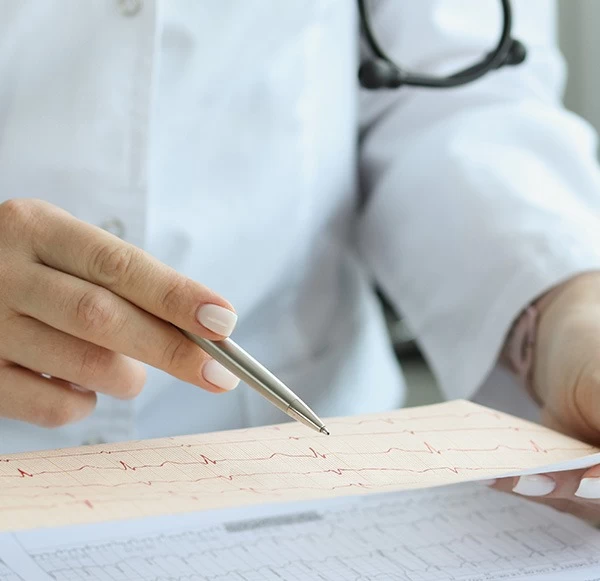- Email Us

A low-grade fever or persistent exhaustion may just be another temporary infection, but there are times when what is perceived to be an ordinary disease is actually something much more sinister such as malaria, typhoid, or dengue.
This parasitic disease does not necessarily blare its presence, it tends to sneak in quietly and go unnoticed until the symptoms worsen. The question then becomes: why wait for that fever to set in when early, preventive malaria tests could provide you with the clarity and head start you need?
According to the National Center for Vector Borne Disease Control (NCVBDC), India reported over 170,000 malaria cases in 2023. Though there's been progress in reducing incidence rates over the last decade, the disease still poses a serious health threat, especially in rural and semi-urban regions. States such as Chhattisgarh, Odisha, Jharkhand, and West Bengal continue to contribute significantly to the national malaria burden.
At Mahajan Imaging & Labs, we believe in empowering the masses with preventive healthcare tools and early diagnostics. Malaria may be prevalent, but that doesn't mean it has to be lethal. Not if we catch it early.
This article intends to offer you information about prevention and control of malaria along with explaining some diagnostic tests for malaria.
Malaria is an infection that is transmitted through mosquitoes by Plasmodium parasites. There are a variety of these parasites, but two of the most common and troublesome ones in India are Plasmodium vivax and Plasmodium falciparum. When one gets infected, the parasites grow in the liver first and then travel into the bloodstream to cause symptoms including high fever, chills, nausea, drowsiness, and in a few instances, even coma and death.
What makes malaria so difficult is that it imitates other diseases in its onset, so occasionally it is undiagnosed or worse, overlooked. And although it is curable, the true strength is in identifying it before it inflicts damage.
Symptoms of malaria can appear anywhere between 10 days to 4 weeks after infection, although in some cases it may take longer. Typical symptoms include:
In some severe cases: confusion, seizures, difficulty breathing, or coma
If left untreated, malaria, particularly P. falciparum, can lead to severe complications such as organ failure, severe anemia, or cerebral malaria, which can be fatal. Individuals most at risk include children, pregnant women, older adults, and those with weakened immune systems.
Preventive testing is not just for those who feel sick but it is for anyone who wants to stay well. Whether you've been exposed to mosquito bites, recently traveled to a high-risk area, or are living in a region where malaria is endemic, early detection can make a significant difference.
Many people don't realize that malaria can be asymptomatic in its initial phase, especially in individuals who've been exposed before. In such cases, the body doesn't show obvious signs, but the parasite silently continues its damage. This makes diagnostic testing a powerful ally not just for treatment but for peace of mind.
At Mahajan Imaging & Labs, we offer a comprehensive range of detection tests for prevention and control of malaria. These aren't just random tests; they're carefully selected based on sensitivity, accuracy, and the patient's needs. Here's how they work and why they matter:
Using a molecular technique, this test detects the presence of even a very small number of malaria parasites in your blood. What makes it truly impressive is that it can identify the infection before symptoms appear. So if you are anyone experiencing recurring fevers that haven't been explained by other illnesses, we recommend a test today to see if you are infected.
Unlike the more advanced PCR, this is a rapid test that identifies the proteins (antigens) produced by Plasmodium vivax and falciparum. The biggest advantage is its speed and efficiency, which ensures quick availability of the results, besides helping the doctors start the right treatment based on the specific type of parasite.
This technique might sound a little technical, but here's the simple version: it uses fluorescent microscopy to highlight malaria parasites in your blood, even if they're present in tiny numbers. This test is faster than traditional blood smears and especially helpful when dealing with low-parasite infections that may otherwise go unnoticed.
This is what most people know as the "blood smear" test. A small sample of your blood is observed under a microscope to look for the parasites themselves. While it might sound old-school, it's still considered the gold standard in many cases because it helps determine the exact parasite stage and load.
This test detects antibodies your body produces in response to the malaria parasite. It's often used to understand whether someone has had past exposure or in complicated cases where the parasite might not show up in other tests. It's also helpful for surveillance, especially in communities or families with repeated infections.
Precaution is always better than cure, and so, the simple message here is do not wait for the fever to strike. When it comes to malaria, prevention is not only better but also easier and more effective than treatment.
Got more questions? We've addressed some of the most common doubts and misconceptions below to help you make informed choices.
Yes, RT-PCR is one of the most sensitive and accurate diagnostic tools available for malaria today. It can detect even low levels of parasitemia, making it ideal for early or asymptomatic cases. Its reliability, however, depends on the quality of the lab and the handling of the sample.
Not necessarily. In many cases, especially in people with prior exposure, malaria can stay asymptomatic for days. That’s why preventive testing is crucial if you’ve recently traveled to or live in a malaria-prone area.
Absolutely. In fact, early or preventive testing is encouraged—especially during peak seasons or if you’re in a high-risk region. Many individuals get tested as a precautionary step even before symptoms arise.
Myth: Malaria is only a monsoon-season disease.
Fact: While mosquito breeding increases during monsoon, malaria can occur year-round in tropical regions.
Myth: If you’ve had malaria once, you can’t get it again.
Fact: You can get infected multiple times as there are different types of Plasmodium parasites.
Myth: Malaria always causes high fever.
Fact: Some forms may present only with fatigue or nausea in early stages.
You can book your test with us through our website, WhatsApp, or by calling our customer care. For quick and easy booking, you can chat with us on WhatsApp at +91 88828 97661 or speak directly to our support team at +91 11 4118 3838. We offer both in-centre testing and home sample collection, ensuring flexibility and convenience based on your preference.
Visit us at mahajanimaging.com to schedule your appointment or learn more about our preventive health packages.




